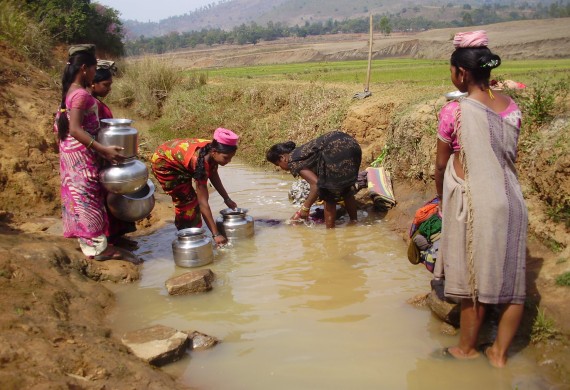
Safe Water Network event highlights Women's responsibilities in clean water supply chain
By: WE Staff | Friday, 12 November 2021
The virtual event brings together key stakeholders to discuss the nexus of gender and water, as well as how the organization's social entrepreneurial model is addressing the problem.
Nisha Biswal, Senior Vice-President of Strategic Initiatives at the US Chamber of Commerce and President of the US-India Business Council, remarked, “Some of the most impactful activist movements around the world on water have been driven by women,”
Delivering a keynote address at the “Women and Water: Entrepreneurship and Empowerment through Better Access,” hosted by the New York-based Safe Water Network on November 8, she said, “We are increasingly looking for more women at the political level and at the corporate level to help drive solutions and ensure that resources are targeted in a way that addresses the gender impact.”
The virtual event brought together key supporters, allies, and stakeholders from the United States, India, and other parts of the world as part of Safe Water Network's efforts to put women at the forefront of their work in India and Ghana through empowerment, outreach activities, and innovative interventions.
Women's changing responsibilities in the clean water supply chain were highlighted at the event.
Randhir Jaiswal, Consul General of India in New York, Bhavani Parameswar, President of Indivate Inc (ITC Group), and Poonam Sewak, Vice-President of Safe Water Network's India Programs and Partnerships, were among the other speakers.
Talking about the efforts of the Indian government, Jaiswal said: “Water is so seminal to our existence. Jal Jeevan Mission, is a multi-stakeholder platform wherein the central government, the state governments, civil society, NGOs, knowledge partners, United Nations, and organizations such as Safe Water Network are all working together to provide water access in India to rural households. If we were to provide millions of women with connections to water, they would be liberated from the drudgery of fetching water from faraway places.”
The strategy has been adopted in a number of Indian villages, eliminating barriers to participation, providing long-term training, and opening doors for women from all walks of life. To present, 548 women station operators and 152 entrepreneurs from 20 Indian states have participated in the initiative. Safe Water Network is assisting women entrepreneurs by installing automatic dispensers, providing remote maintenance monitoring, and implementing digital contactless payments.


.jpg)



